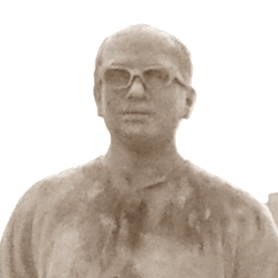Syed Nazrul Islam facts for kids
Quick facts for kids
Shahid
Syed Nazrul Islam
|
|
|---|---|
|
সৈয়দ নজরুল ইসলাম
|
|
| Minister of Industries of Bangladesh | |
| In office 13 January 1972 – 26 January 1975 |
|
| Prime Minister | Sheikh Mujibur Rahman |
| Preceded by | Position established |
| Succeeded by | Abul Hasnat Muhammad Qamaruzzaman |
| Vice President of Bangladesh | |
| In office 17 April 1971 – 12 January 1972 |
|
| President | Sheikh Mujibur Rahman |
| Prime Minister | Tajuddin Ahmad |
| Preceded by | Position established |
| In office 25 January 1975 – 15 August 1975 |
|
| President | Sheikh Mujibur Rahman |
| Prime Minister | Muhammad Mansur Ali |
| Succeeded by | Position abolished (Abdus Sattar in 1977) |
| President of Provisional Government of Bangladesh | |
|
Acting
|
|
| In office 17 April 1971 – 12 January 1972 |
|
| Prime Minister | Tajuddin Ahmad |
| Preceded by | Position established |
| Succeeded by | Position abolished |
| Personal details | |
| Born | 18 February 1925 Kishoreganj, Bengal, British India |
| Died | 3 November 1975 (aged 50) Dhaka Central Jail, Dhaka, Bangladesh |
| Political party | Bangladesh Krishak Sramik Awami League (1975) |
| Other political affiliations |
All-India Muslim League (Before 1949) Awami League (1949–1975) |
| Children | 6 Including Shafayet, Zakia & Ashraful |
| Alma mater | University of Dhaka |
Syed Nazrul Islam was an important Bangladeshi politician. He was a senior leader of the Awami League, a major political party. During the Bangladesh Liberation War in 1971, he played a crucial role. He was declared the Vice President of Bangladesh by the Provisional Government. He also served as the Acting President when Sheikh Mujibur Rahman was not able to be there.
Contents
Early Life and Education
Syed Nazrul Islam was born in 1925 in a village called Bir Dampara in Kishoreganj. This area was part of the Bengal Presidency in British India at the time. He studied history and law at the University of Dhaka.
He was very active in student politics. He was part of the All-India Muslim League. Syed was also good at sports, captaining his college's cricket and hockey teams. He joined the civil service in 1949 but left in 1951. After that, he became a history professor and also worked as a lawyer.
Key Political Roles
Syed Nazrul Islam's political journey began when he joined the Awami Muslim League. He took part in the Language Movement in 1952. This movement was about making Bengali an official language. He was even arrested for his involvement.
He became a close friend and trusted helper of Sheikh Mujibur Rahman, the leader of the Awami League. Syed was jailed during the Six Point Demand movement, which called for more power for East Pakistan. In 1970, he was elected to the National Assembly of Pakistan.
Role in Independence
When Pakistani forces arrested Sheikh Mujibur Rahman in March 1971, Syed Nazrul Islam escaped. He went to Mujibnagar with other party leaders. There, they declared Bangladesh's independence.
Even though Mujib was the elected president, Syed served as the acting president. Tajuddin Ahmed was the prime minister. Syed was very important in leading the fight for independence. He helped organize the Mukti Bahini, a group of freedom fighters. He also worked to get support from India and other countries.
After Independence
After Bangladesh became independent, Syed Nazrul Islam continued to serve his country. He was made the Minister of Industries. He also became the deputy leader in parliament. He was part of the committee that wrote the new constitution for Bangladesh.
In 1975, when Sheikh Mujibur Rahman became president with more power, Syed was appointed vice-chairman of the BAKSAL. This was the new name for the Awami League.
Family Life
Syed Nazrul Islam was married to Syeda Nafisa Islam. They had six children together. They had four sons and two daughters. Some of his children include Sayed Ashraful Islam, Syed Manzurul Islam Manju, Syed Shariful Islam, Syed Shafayetul Islam, Syeda Zakia Noor Lipi, and Syeda Rafia Noor.
Tragic End
After Sheikh Mujibur Rahman was assassinated in August 1975, Syed Nazrul Islam went into hiding. Other leaders loyal to Mujib, like Tajuddin Ahmad, A. H. M. Qamaruzzaman, and Muhammad Mansur Ali, also hid. However, they were all arrested by the new government.
These four leaders were put in the Dhaka Central Jail. Sadly, they were killed there on November 3, 1975. This event is known as the Jail Killing. Every year, Bangladesh remembers this day as Jail Killing Day.
Lasting Legacy

Syed Nazrul Islam is remembered as a hero in Bangladesh. A government medical college in Kishoreganj is named after him: Shahid Syed Nazrul Islam Medical College. His son, Sayed Ashraful Islam, also became a well-known politician.
 | Bayard Rustin |
 | Jeannette Carter |
 | Jeremiah A. Brown |

